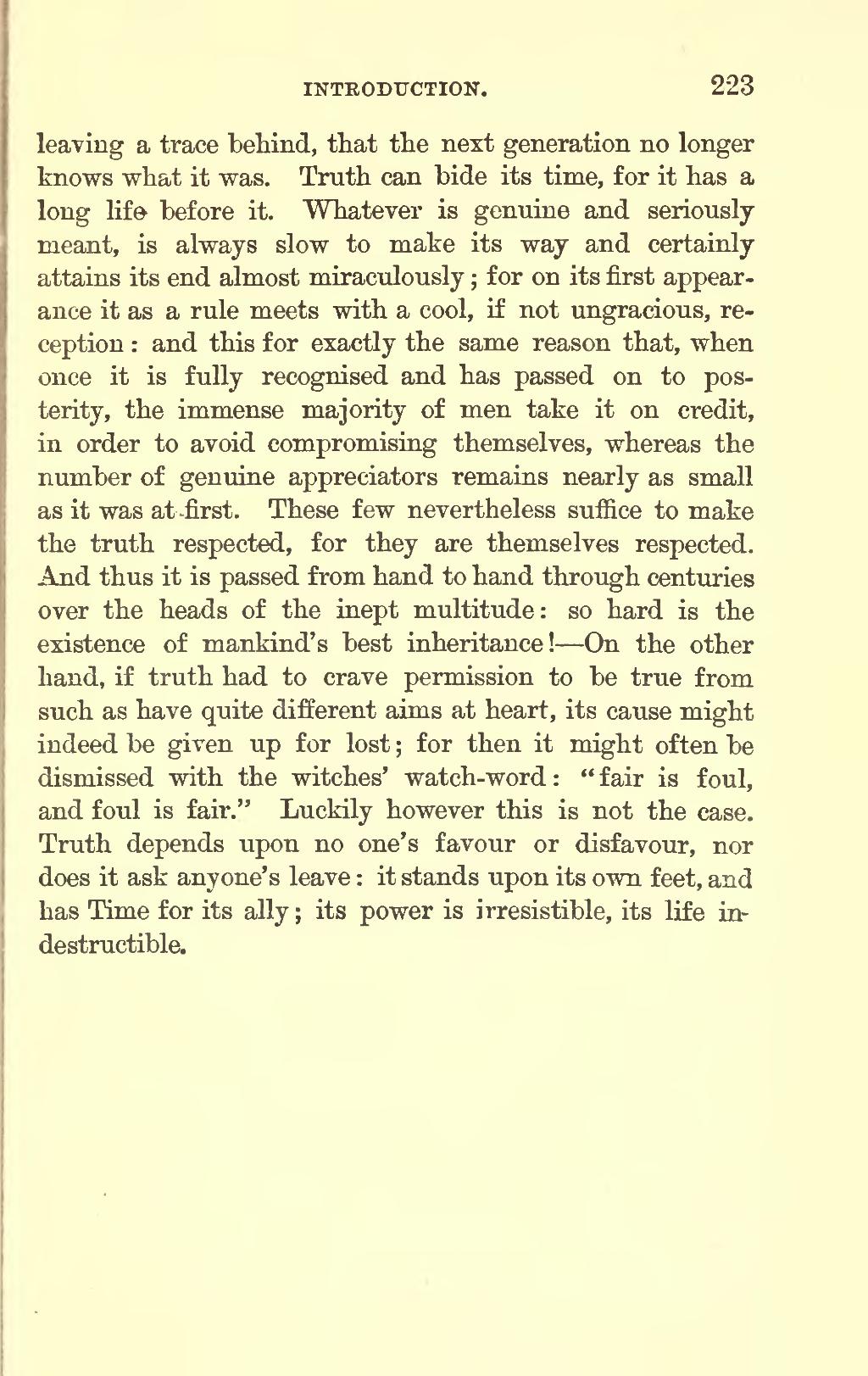leaving a trace behind, that the next generation no longer knows what it was. Truth can bide its time, for it has a long life before it. Whatever is genuine and seriously meant, is always slow to make its way and certainly attains its end almost miraculously; for on its first appear ance it as a rule meets with a cool, if not ungracious, reception: and this for exactly the same reason that, when once it is fully recognised and has passed on to posterity, the immense majority of men take it on credit, in order to avoid compromising themselves, whereas the number of genuine appreciators remains nearly as small as it was at first. These few nevertheless suffice to make the truth respected, for they are themselves respected. And thus it is passed from hand to hand through centuries over the heads of the inept multitude: so hard is the existence of mankind's best inheritance!—On the other hand, if truth had to crave permission to be true from such as have quite different aims at heart, its cause might indeed be given up for lost; for then it might often be dismissed with the witches' watch-word: "fair is foul, and foul is fair."[1] Luckily however this is not the case. Truth depends upon no one's favour or disfavour, nor does it ask anyone's leave: it stands upon its own feet, and has Time for its ally; its power is irresistible, its life indestructible.
- ↑ Shakespeare, Macbeth. (Wikisource contributor note)
